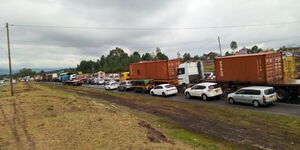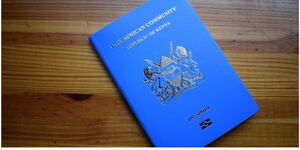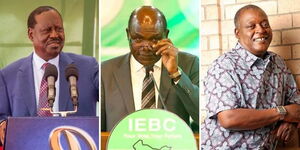The Departmental Committee on Finance and National Planning, led by Molo MP Kimani Kuria, has invited Kenyans to submit their views on the Finance Bill 2025. However, most Kenyans have expressed difficulty in understanding some of the proposals in the bill.
Kenyans.co.ke takes a dive into some of the proposals on the Value Added Tax (VAT), which has a direct and indirect impact on the over 50 million citizens.
Electronic Tax Standardisation
The Bill proposes to redefine a tax invoice as an electronic document issued under the Tax Procedures Act. This means that businesses will now be expected to use government-approved electronic invoicing systems. The move is aimed at improving tax compliance, reducing fraud, and ensuring that all transactions are traceable by the Kenya Revenue Authority (KRA).
Media and Broadcasting Services
Currently, radio and TV broadcasting services are taxed in Kenya if the content produced reaches local consumers. However, the Finance Bill 2025 seeks to change this provision.
The Bill wants to change this by removing that provision. This would likely shift how foreign-based broadcasters are taxed, potentially making it harder for KRA to collect VAT from international digital media companies targeting Kenyan audiences.
Automatic Offsetting of Withheld Tax
Usually, when tax agents withhold VAT on behalf of KRA, businesses offset that amount against what they owe. The bill aims to scrap this automatic offsetting, meaning that businesses may be required to wait longer or go through an additional process to claim this money. This might likely affect the cash flow for companies heavily affected by withholding taxes.
VAT Claims Timelines
VAT claims will be reduced from 24 months to 12 months. Currently, if a business pays more VAT than it owes, it has up to 24 months to claim the excess. This will aid the government in putting pressure on businesses to keep tight tax records and submit refund claims faster, or risk losing the excess amount.
VAT Refunds on Unpaid Supplies
For businesses trading with either the government or other stakeholders, currently, if they do not get paid, as is the case with the pending bills, they get to claim VAT refunds within three years. However, in the proposed bill, the period will be shortened to two years.
This will allow businesses to use the unpaid tax to offset other VAT obligations. This will be a plus to those with VAT liabilities, but will pose a challenge for businesses operating on long credit terms.
Mandatory Invoicing for All Supplies
All registered businesses will be required to issue tax invoices for every transaction, whether the goods or services are taxable or not. This will help the government to ensure full documentation for KRA and tight controls on VAT compliance, especially in sectors known for underreporting.
Penalties or Misuse of Exempted Goods
If a person or an entity imports goods VAT-free (such as for a tax-exempt project) but later uses them for a different purpose, they will be subject to paying the VAT they initially avoided. This will aim to address the misuse of tax exemptions and to ensure that only eligible activities benefit from VAT reliefs.
VAT on Aircraft Parts and Equipment
The Bill proposes to shift aircraft and aviation parts—including tools, equipment, and navigation devices—from VAT-exempt to the standard 16 per cent VAT rate. Only licensed aviation businesses recommended by the civil aviation authority will qualify for relief.
This move could increase operating costs for airlines and maintenance firms in the aviation sector.
This proposal had attracted a lot of concerns from the stakeholders in the last Finance Bill of 2024.
VAT Exemptions
Several key VAT exemptions, like those on tourism facilities, affordable housing projects, hospitals, energy equipment, and mining tools, will be phased out.
However, the bill proposes a one-year grace period up to June 2026 for these projects to continue enjoying tax breaks. This will allow investors some time to adjust or finalise their projects under the current tax structure.












